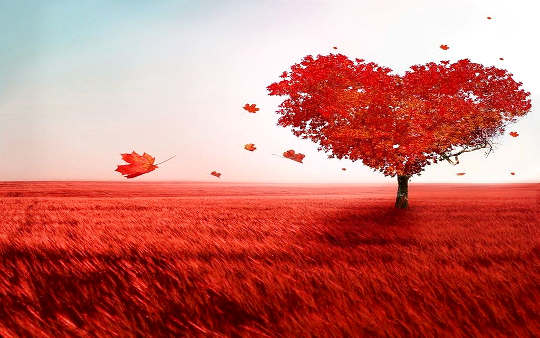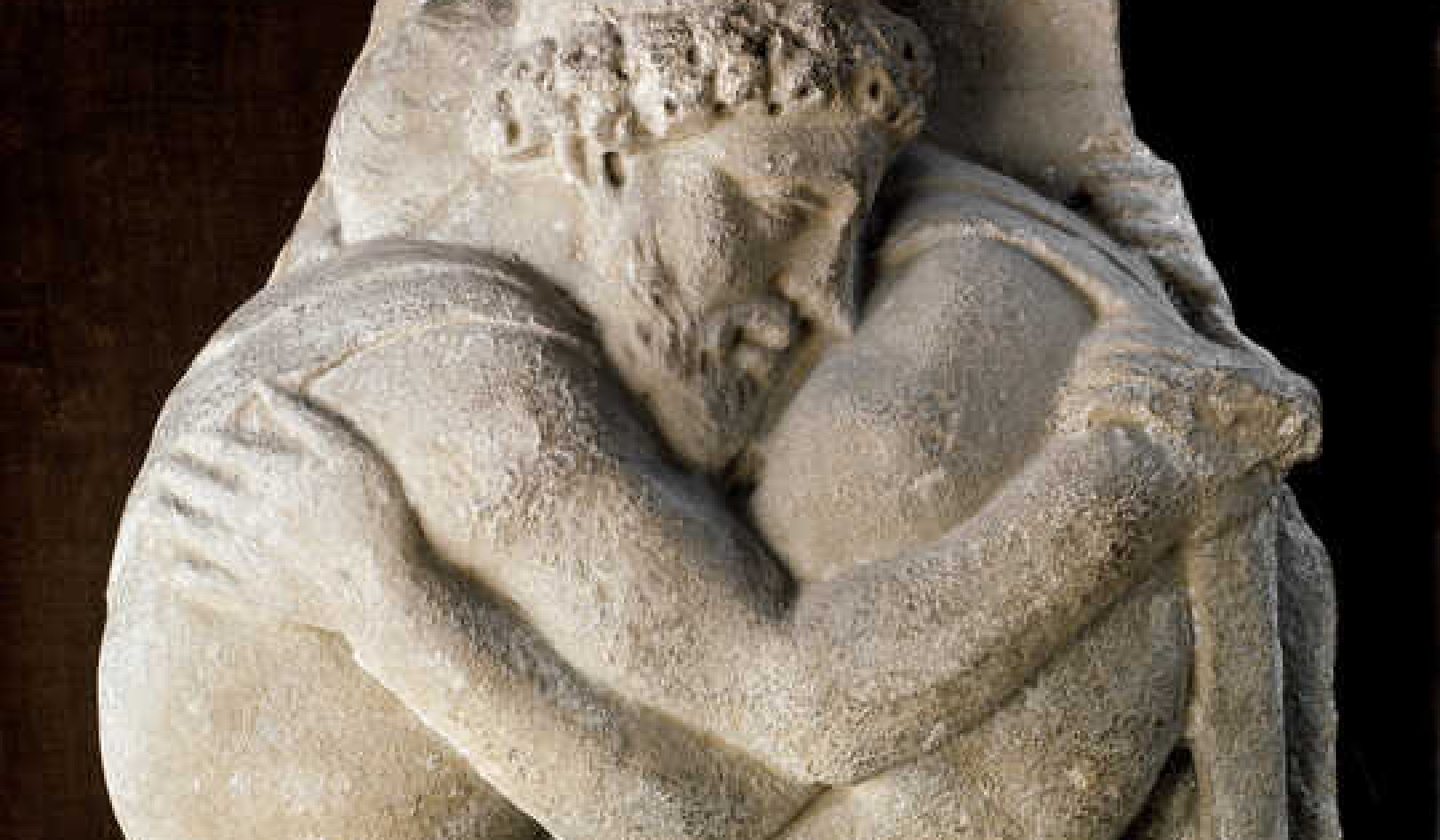
For most of us, the word oneness is gibberish. Perhaps it’s a concept with a nice ring, but it refers to nothing real in our experience. When we hear ideas such as, “We will all awaken to our oneness in God,” many of us think of spiritual reality as a huge blended drink in which all our distinctions are whipped into sameness and we as individuals cease to exist.
The affection we have for each other unquestionably heads toward oneness or unity, but whom do you know who has arrived? Quite naturally, in a world where all things are known by their differences, we believe that finding those people who are less different (more like us) is the key to strong friendship and loving partnership.
People sometimes say of a rocky association, “We have our differences.” The rationale that “we discovered we had little in common” is considered sufficient grounds for ending a marriage or breaking up a friendship. For some guardians or parents, “not fitting in” is grounds for turning against one of their biological children, “disrupting” an adoption, or giving back a foster child.
Desperately Seeking Oneness By Being "Agreeable"?
Because there is no eternal oneness in the world, we strive for an impression, an intimation of oneness. In the classified “personals” and in our encounters with strangers, we seek the common ground. In the little conversations we have with a clerk, a waiter, or a stranger standing in line, we often try to say something “agreeable.”
Weather, for example, is considered a “safe subject”—meaning we are less likely to seem too different if we stick to temperature and rain. That is, provided we don’t go deeply into our personal feelings about weather. If we start recounting a childhood rain trauma to a toll-both operator, it’s a safe bet we won’t achieve a sense of bonding.
If we wish to maintain a relationship with a relative or friend, we usually stick to “areas of agreement.” Perhaps an adult daughter finds that she gets along with her mother best when they are in the kitchen. An adult son notices that things go more smoothly with his father when they watch “the game” together. Most people know which friendships can be hurt by a political or religious discussion and avoid those topics.
Is That The Way It Must Be?
Naturally, we believe this is the reality we must settle for. If we are to have a small measure of love and belonging, of being welcomed and accepted, we must carefully balance each relationship on the little edge of common ground we have with those individuals. Yet the more experiences we have, the more precarious we realize this balance is.
If we look closely—and certainly the present ideal is to scrutinize all relationships—we see that we are different from every person we know in all respects. We try to put a good face on this by saying that variety is the spice of life. Yet regardless of how we rationalize it, loneliness remains the world’s dominant emotion. We came into the world alone. We will leave it alone. And while we are here, we are wholly united with no living thing, not even ourselves.
Needing An Escape From Each Other's Reality
In the last few decades of the twentieth century, through television and other forms of mass communication, we became dramatically more aware of people’s circumstances throughout the world. Many of us began to feel overwhelmed and suffocated by the enormity of humanity’s misery. Shangri-La and the magical land of the Hobbits obviously wasn’t out there. We now knew all too well what was out there.
At the time this was happening on a worldwide scale, it also was occurring within the intimate details of our lives. Distance, time, and routine once provided barriers and breathing space, but now the little difficulties and problems of our friends and coworkers began to crowd into our evenings, weekends, and vacations with the advent of cell phones, pagers, e-mail, voice messaging, and the “Evernet.”
Thus we began to emphasize, even to cherish, our differences as a means of escaping each other. We broke our intact families into single-parent families, our large nations into smaller ones, our religions into sects, our political parties into “wings,” our news commentaries into “opposing” commentaries, and our talk shows into opinion shows.
Can't Find Love and Oneness When You Doubt They Exist
Whether we are seeking closer relationships or trying to buffer ourselves from human misery, only two options seem to be available: We can choose more difference or less difference. What we can’t choose is love. We can’t choose it because we doubt it. We don’t trust it because nothing in our experience consistently reflects it. Yet even as our disbelief in love hardens, our longing for it grows.
It’s interesting that during this period when we find it so difficult to offer welcome and a sense of home to other members of our human family—even to our own mates and children—there is also a growing homesickness within the hearts of so many. This Welcome, this Embrace that we long for, I call God.
I have no better reason for using that word than my own familiarity with it and the comfort I feel when I silently say it. Yet I think of it as a mere indicator of a vast Splendor that is nearer to us than our breath and so utterly harmless that it could be feared by no living thing. It is Love, the great Joy and indescribable Wholeness that enfolds us all, and it can be experienced merely by letting go of everything that is not Love.
I therefore invite you to let go of your doubts and misgivings and take a leap of faith. In each of the encounters we have throughout the day, we leave something behind. In our wake people feel either more relaxed or more separate, more seen or more ignored, more peaceful or more conflicted. And every time someone comes to mind, either we send forth our comfort or our doubt, our blessing or our judgment.
Love Is In The Details
If we wish to know the One who is Love, we must extend love past the boundaries of our ego. But how is this done if not moment by moment, gesture by gesture? Only by giving the tiny miracles of understanding, support, forbearance, and happiness can we know Love.
Neither words nor silence have much to do with these miracles. The sincerity of our heart is the power behind them. For where is Family and Home if not within the ocean of our relationships? Where else can the presence of God first be felt? In the words of the old Shaker hymn,
“If you love not one another in daily communion, how can you love God whom you have never seen? If you love one another, then God is within you, and you are made pure to live in the light.”
Love is not joining with some shining concept in the sky. It is joining with each other. It is lived and expressed in the errands, tasks, and chance meetings that fill each day. Instant by instant we choose to see our sameness and equality with others. We choose to recognize the familiar in each heart. By loving, we wake to Love. By extending peace, we wake to Peace.
Subtitles added by InnerSelf.
©2000, 2017 by Hugh Prather. All rights reserved.
Reprinted with permission of the publisher, Conari Press,
an imprint of Red Wheel/Weiser, LLC. www.redwheelweiser.com.
Article Source
 The Little Book of Letting Go: Cleanse your Mind, Lift your Spirit, and Replenish your Soul
The Little Book of Letting Go: Cleanse your Mind, Lift your Spirit, and Replenish your Soul
by Hugh Prather.
A simple 3-step process for shedding prejudices, preconceptions, and pre-judgments and facing each moment with openness and enthusiasm.
Click here for more info and/or to order this book.
About the Author
 Hugh Prather was the author of more than 14 books. His first book, Notes to Myself, was first published in 1970, has sold over 5 million copies, and has been translated into ten languages. Hugh lived with Gayle, his wife of more than 30 years, in Tucson, Arizona. He was the resident minister at St. Francis in the Foothills United Methodist Church until his death in 2010.
Hugh Prather was the author of more than 14 books. His first book, Notes to Myself, was first published in 1970, has sold over 5 million copies, and has been translated into ten languages. Hugh lived with Gayle, his wife of more than 30 years, in Tucson, Arizona. He was the resident minister at St. Francis in the Foothills United Methodist Church until his death in 2010.



























